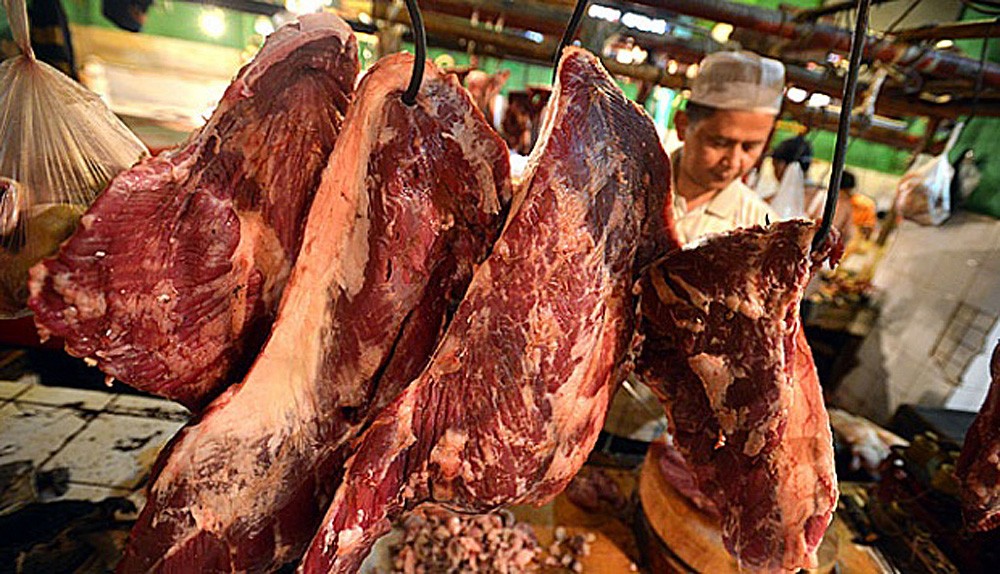Popular Reads
Top Results
Can't find what you're looking for?
View all search resultsPopular Reads
Top Results
Can't find what you're looking for?
View all search resultsGovt's buffalo meat wheeze meets frosty market response
Change text size
Gift Premium Articles
to Anyone
D
uring the Idul Fitri holiday, households across Indonesia serve meat-based dishes such as rendang (beef simmered in coconut milk and spices) and semur daging (beef stew). Next year, how about substituting beef with the less pricey buffalo meat?
“Gross,” says Titi, 48, who was buying meat at Perumnas Klender market in East Jakarta on Friday, highlighting the first challenge that the government faces in marketing its first-ever buffalo meat imported from India.
The first batch of a total of 10,000 tons of buffalo meat from a foot and mouth disease (FMD)-free zone in India is being shipped to Indonesia at present, the first ever such shipment from the region, as part of an attempt to diversify import destinations and bring down stubbornly high beef prices.
“Even tough I am Betawi, I dislike buffalo meat,” said Titi, a resident of Penggilingan in East Jakarta, referring to the traditional usage of buffalo meat by native Jakartans to make semur Betawi, a kind of stew.
Asep, 26, a vendor at Perumnas Klender market, has been selling beef since 2002, but dismissed suggestions he might later sell buffalo meat, pointing to the lack of demand for the commodity.
“As far as I know, and for the same reason, no vendors buy or sell buffalo meat,” Asep said, denying any knowledge of the government's import plan.
The State Logistics Agency (Bulog), the body tasked with managing the imported Indian buffalo meat, said the imports would arrive in Indonesia in two weeks' time, and would be sold at Rp 60,000 per kilogram, half the current price of beef, which now goes for Rp 120,000 to Rp 130,000 per kg at local markets. The prices have stubbornly lingered within that range since last month, far higher than the government’s ideal price for beef of Rp 80,000 per kg.
Bulog president director Djarot Kusumayakti acknowledged that the primary challenge would be to convince the public that the Indian buffalo meat was safe for consumption.
“We’re the first institution instructed to introduce buffalo meat into the local market, so we have to show that it’s healthy for consumption,” Djarot said earlier this week.
As of May 2016, India remained unrecognized by the World Organization for Animal Health as a foot and mouth disease (FMD)-free country, though it has several disease-free zones; the government has promised that all meat imported will be from buffaloes raised and slaughtered in these zones. (mos/est)










